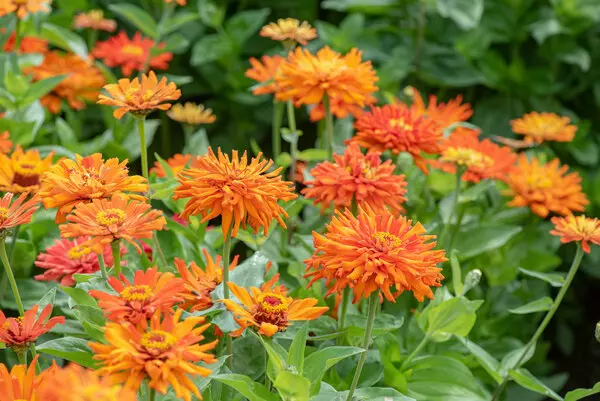Seed Tips
Finding Quality Flower Seeds for Your Garden
Introduction
Creating a vibrant and thriving garden begins with the quality of the seeds you plant. High-quality flower seeds are the foundation for a successful gardening season, ensuring robust growth and bountiful blooms. This article will guide you through the process of finding and selecting the best flower seeds for your garden, from understanding what makes a seed high quality to tips on where to buy and how to store them.
Understanding Flower Seed Quality
When it comes to gardening, not all seeds are created equal. The quality of a flower seed is determined by several factors:
- Genetics: Quality seeds come from healthy parent plants with desirable traits such as vibrant color, disease resistance, and strong growth habits.
- Purity: Seeds should be free from contaminants like weeds, other plant seeds, or debris.
- Germination Rate: This is the percentage of seeds that successfully sprout and grow into plants. A higher germination rate indicates better seed quality.
- Freshness: Seeds lose viability over time. Fresher seeds have a higher chance of successful germination.
- Storage: Proper storage conditions, such as cool, dry environments, help maintain seed quality.
By understanding these factors, gardeners can make informed decisions and select seeds that will yield the best results.
Where to Buy Quality Flower Seeds
Finding a reliable source for flower seeds is crucial. Here are some options:
- Reputable Seed Suppliers: Companies with a good reputation often provide high-quality seeds. Examples include Burpee, Johnny’s Selected Seeds, and Baker Creek Heirloom Seeds.
- Local Garden Centers: These can be excellent sources for seeds, especially those suited to your local climate. Staff at these centers can offer valuable advice.
- Online Retailers: Buying seeds online offers a wide variety of options. Websites like Seed Savers Exchange and Eden Brothers provide extensive catalogs.
- Organic and Heirloom Seeds: For those interested in organic gardening or preserving plant heritage, look for suppliers specializing in organic or heirloom seeds. These seeds are often more robust and adapted to diverse growing conditions.
How to Evaluate Seed Quality Before Purchase
Before purchasing seeds, it’s essential to evaluate their quality. Here’s how:
- Read Seed Packets: Look for information on the packet, including the germination rate, the date of packaging, and any certifications such as “organic” or “non-GMO.”
- Check Reviews and Recommendations: Online reviews and recommendations from fellow gardeners can provide insights into the reliability of the seed supplier and the quality of their products.
- Certifications: Look for certifications from reputable organizations like the Organic Materials Review Institute (OMRI) or the Non-GMO Project. These certifications ensure that the seeds meet specific
quality standards. - Ask Questions: Don’t hesitate to contact the supplier with any questions about the seeds, such as their origin, growth conditions, and any treatments they have undergone.
Proper Storage and Handling of Flower Seeds
Once you have your seeds, proper storage and handling are crucial to maintain their quality:
- Storage Conditions: Keep seeds in a cool, dry place. Ideal storage conditions are in airtight containers placed in a refrigerator or a cool basement.
- Avoid Moisture: Moisture can cause seeds to mold or sprout prematurely. Ensure seeds are thoroughly dry before storing.
- Labeling: Clearly label your seed containers with the type of seed and the date of storage. This helps in keeping track of their age and viability.
- Proper handling and storage can significantly prolong the life of your seeds, ensuring they remain viable for several planting seasons.
Conclusion
Finding quality flower seeds is the first step towards creating a beautiful and thriving garden. By understanding what makes a seed high quality, knowing where to buy them, evaluating their quality before purchase, and storing them properly, you set the stage for a successful gardening experience. Start your garden with confidence, knowing that the seeds you plant are the best foundation for a season of vibrant blooms.

